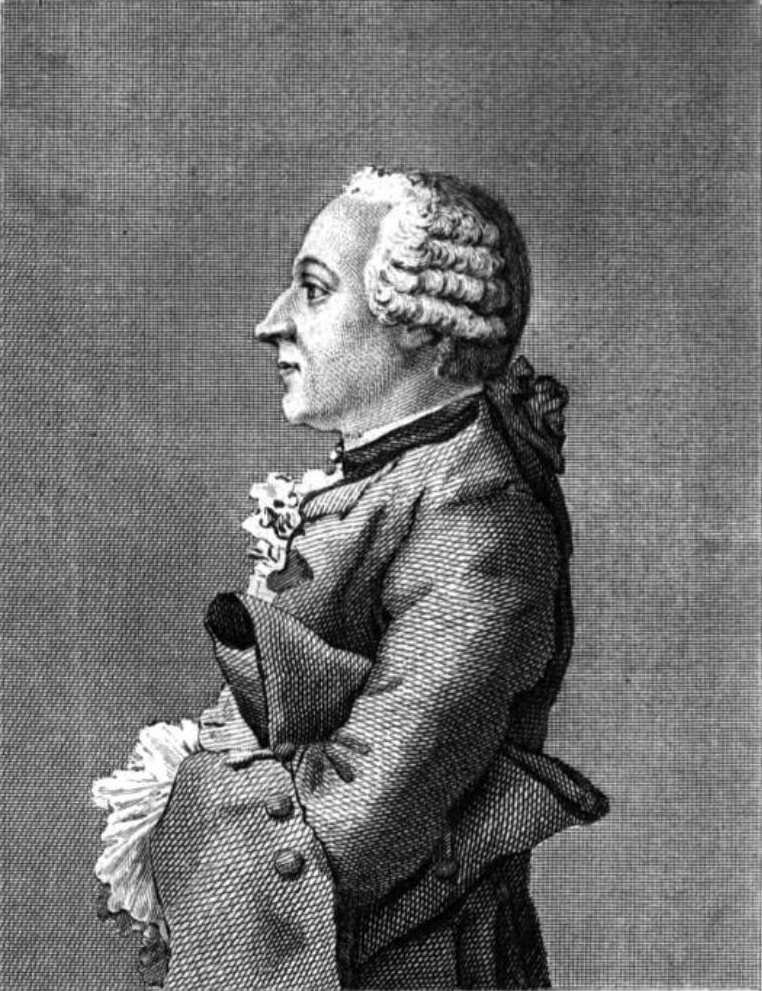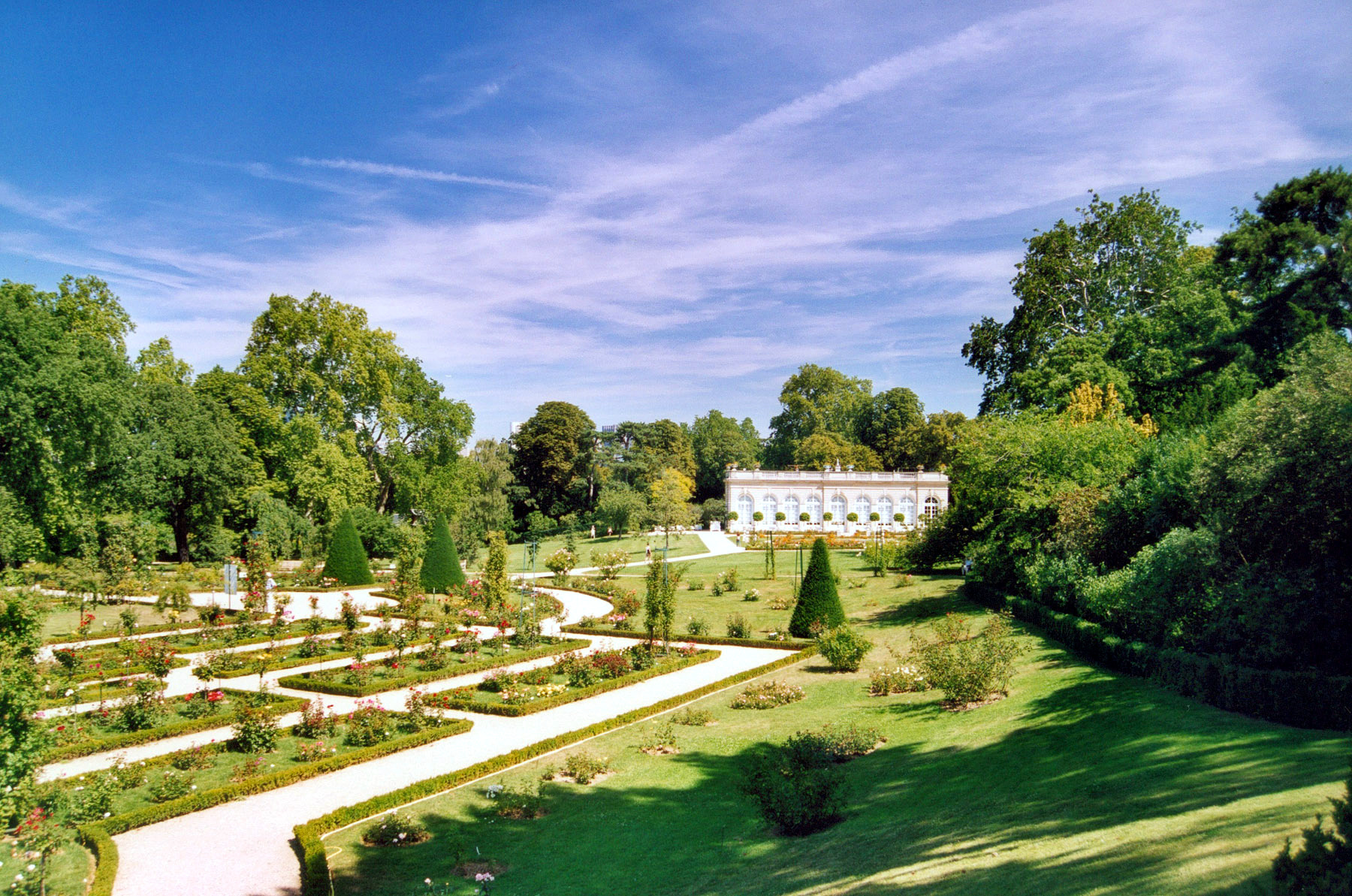|
Marie-Charlotte Hippolyte De Campet De Saujon
Marie-Charlotte Hippolyte de Campet de Saujon, by marriage Countess of Boufflers (6 September 1725- 1800), was a French femme de lettres and salon hostess. Nicknamed "''l'idole''" by Madame du Deffand, she was a lady in waiting to the Duchesse de Chartres and a mistress of Chartres' brother, the Prince de Conti. Life Marie-Charlotte Hippolyte de Campet de Saujon was born in Rouen, the daughter of Charles-François de Saujon, Baron de la Rivère, and Louis-Angélique de Barberin de Reignac. She married Comte Édouard de Boufflers-Rouverel, cavalry captain in the régiment de Bellefonds, on 15 February 1746. They had one child, Louis-Édouard de Boufflers-Rouverel (1746-1795). Shortly after her marriage, she became lady in waiting to the Duchesse de Chartres. At the Palais-Royal, she got to know the duchess' brother, the Prince de Conti, and soon became his mistress. After an argument with the powerful Orléans family, she installed herself at a small hôtel particulier in enclos ... [...More Info...] [...Related Items...] OR: [Wikipedia] [Google] [Baidu] |
Melchior Grimm
Friedrich Melchior, Baron von Grimm (26 September 172319 December 1807) was a German-born French-language journalist, art critic, diplomat and contributor to the ''Encyclopédie ou Dictionnaire raisonné des sciences, des arts et des métiers''. In 1765 Grimm wrote ''Poème lyrique'', an influential article for the Encyclopédie on lyric and opera librettos. Like Christoph Willibald Gluck and Ranieri de' Calzabigi, Grimm became interested in opera reform. According to Martin Fontius, a German literary theorist, "sooner or later a book entitled ''The Aesthetic Ideas of Grimm'' will have to be written." Early years Grimm was born at Regensburg, the son of Johann Melchior Grimm (1682–1749), a pastor, and Sibylle Margarete Grimm, (''née'' Koch) (1684–1774). He studied at the University of Leipzig, where he came under the influence of Johann Christian Gottsched and of Johann August Ernesti, to whom he was largely indebted for his critical appreciation of classical literatu ... [...More Info...] [...Related Items...] OR: [Wikipedia] [Google] [Baidu] |
Gustav III Of Sweden
Gustav III (29 March 1792), also called ''Gustavus III'', was King of Sweden from 1771 until his assassination in 1792. He was the eldest son of Adolf Frederick of Sweden and Queen Louisa Ulrika of Prussia. Gustav was a vocal opponent of what he saw as the abuse of political privileges seized by the nobility since the death of King Charles XII. Seizing power from the government in a coup d'état, called the Swedish Revolution, in 1772 that ended the Age of Liberty, he initiated a campaign to restore a measure of Royal autocracy, which was completed by the Union and Security Act of 1789, which swept away most of the powers exercised by the Swedish Riksdag (parliament) during the Age of Liberty, but at the same time it opened up the government for all citizens, thereby breaking the privileges of the nobility. A bulwark of enlightened absolutism, Gustav spent considerable public funds on cultural ventures, which were controversial among his critics, as well as military attemp ... [...More Info...] [...Related Items...] OR: [Wikipedia] [Google] [Baidu] |
Auteuil-Neuilly-Passy
Neuilly-Auteuil-Passy, sometimes also referred to just as Passy-Auteuil, refers to an area covering the westernmost part of the city of Paris and a neighbouring suburban community. This area is commonly known as one of the richest in Paris, with calm, select and very expensive neighbourhoods. Neuilly-Auteuil-Passy is sometimes abbreviated as NAP. Auteuil (pronounced ) and Passy are part of the 16th arrondissement of Paris, while Neuilly-sur-Seine is a suburb located immediately to their west. The three communities border the Bois de Boulogne park. The area has been described as "the wealthiest, the most cocksure and, in many ways, the most irritating part of the city." Passy Benjamin Franklin lived in Passy from 1777 to 1785. When he left, Thomas Jefferson said, "When he left Passy, it seemed as if the village had lost its patriarch." Honoré de Balzac lived in Passy for over six years. Passy is home to the Musée Marmottan Monet, housed in the Château de la Muette, and ... [...More Info...] [...Related Items...] OR: [Wikipedia] [Google] [Baidu] |
Louis François, Prince Of Conti
Louis François de Bourbon, or Louis François I, Prince of Conti (13 August 1717 – 2 August 1776), was a French nobleman who became the Prince of Conti from 1727 to his death, succeeding his father, Louis Armand II, Prince of Conti, Louis Armand II de Bourbon. His mother was Louise Élisabeth de Bourbon, the daughter of Louis, Prince of Condé (1668–1710), Louis III, Prince of Condé and Louise Françoise de Bourbon, a legitimized daughter of King Louis XIV of France. His younger sister, Louise Henriette de Bourbon, was the mother of ''Louis Philippe II, Duke of Orléans, Philippe Égalité''. As a member of the reigning House of Bourbon, he was a Prince du Sang. Biography Louis François I de Bourbon was born in Paris. In 1731, he married Louise Diane d'Orléans, Louise Diane d'Orléans, ''Mademoiselle de Chartres'' (the first-cousin of his mother Louise Élisabeth, through her mother), who was the youngest daughter of Philippe II, Duke of Orléans (the regent, Régent of Fr ... [...More Info...] [...Related Items...] OR: [Wikipedia] [Google] [Baidu] |
Château De Versailles
The Palace of Versailles ( ; french: Château de Versailles ) is a former royal residence built by King Louis XIV located in Versailles, about west of Paris, France. The palace is owned by the French Republic and since 1995 has been managed, under the direction of the French Ministry of Culture, by the Public Establishment of the Palace, Museum and National Estate of Versailles. Some 15,000,000 people visit the palace, park, or gardens of Versailles every year, making it one of the most popular tourist attractions in the world. Louis XIII built a simple hunting lodge on the site of the Palace of Versailles in 1623 and replaced it with a small château in 1631–34. Louis XIV expanded the château into a palace in several phases from 1661 to 1715. It was a favorite residence for both kings, and in 1682, Louis XIV moved the seat of his court and government to Versailles, making the palace the ''de facto'' capital of France. This state of affairs was continued by Kings Louis XV an ... [...More Info...] [...Related Items...] OR: [Wikipedia] [Google] [Baidu] |
Château De Stors
A château (; plural: châteaux) is a manor house or residence of the lord of the manor, or a fine country house of nobility or gentry, with or without fortifications, originally, and still most frequently, in French-speaking regions. Nowadays a ''château'' may be any stately residence built in a French style; the term is additionally often used for a winegrower's estate, especially in the Bordeaux region of France. Definition The word château is a French word that has entered the English language, where its meaning is more specific than it is in French. The French word ''château'' denotes buildings as diverse as a medieval fortress, a Renaissance palace and a fine 19th-century country house. Care should therefore be taken when translating the French word ''château'' into English, noting the nature of the building in question. Most French châteaux are "palaces" or fine "country houses" rather than "castles", and for these, the word "château" is appropriate in English. ... [...More Info...] [...Related Items...] OR: [Wikipedia] [Google] [Baidu] |
Horace Walpole
Horatio Walpole (), 4th Earl of Orford (24 September 1717 – 2 March 1797), better known as Horace Walpole, was an English writer, art historian, man of letters, antiquarian, and Whigs (British political party), Whig politician. He had Strawberry Hill House built in Twickenham, southwest London, reviving the Gothic Revival, Gothic style some decades before his Victorian era, Victorian successors. His literary reputation rests on the first Gothic fiction, Gothic novel, ''The Castle of Otranto'' (1764), and his ''Letters'', which are of significant social and political interest. They have been published by Yale University Press in 48 volumes. In 2017, a volume of Walpole's selected letters was published. The youngest son of the first British Prime Minister, Sir Robert Walpole, 1st Earl of Orford, he became the 4th and last Earl of Orford of the second creation on his nephew's death in 1791. Early life: 1717–1739 Walpole was born in London, the youngest son of Prime Minister ... [...More Info...] [...Related Items...] OR: [Wikipedia] [Google] [Baidu] |
Samuel Johnson
Samuel Johnson (18 September 1709 – 13 December 1784), often called Dr Johnson, was an English writer who made lasting contributions as a poet, playwright, essayist, moralist, critic, biographer, editor and lexicographer. The ''Oxford Dictionary of National Biography'' calls him "arguably the most distinguished man of letters in English history". Born in Lichfield, Staffordshire, he attended Pembroke College, Oxford until lack of funds forced him to leave. After working as a teacher, he moved to London and began writing for ''The Gentleman's Magazine''. Early works include ''Life of Mr Richard Savage'', the poems ''London'' and ''The Vanity of Human Wishes'' and the play ''Irene''. After nine years' effort, Johnson's '' A Dictionary of the English Language'' appeared in 1755, and was acclaimed as "one of the greatest single achievements of scholarship". Later work included essays, an annotated ''The Plays of William Shakespeare'', and the apologue ''The History of R ... [...More Info...] [...Related Items...] OR: [Wikipedia] [Google] [Baidu] |
Pierre-Augustin Caron De Beaumarchais
Pierre-Augustin Caron de Beaumarchais (; 24 January 1732 – 18 May 1799) was a French polymath. At various times in his life, he was a watchmaker, inventor, playwright, musician, diplomat, spy, publisher, horticulturist, arms dealer, satirist, financier and revolutionary (both French and American). Born a Parisian watchmaker's son, Beaumarchais rose in French society and became influential in the court of Louis XV as an inventor and music teacher. He made a number of important business and social contacts, played various roles as a diplomat and spy, and had earned a considerable fortune before a series of costly court battles jeopardized his reputation. An early French supporter of American independence, Beaumarchais lobbied the French government on behalf of the American rebels during the American War of Independence. Beaumarchais oversaw covert aid from the French and Spanish governments to supply arms and financial assistance to the rebels in the years before France's fo ... [...More Info...] [...Related Items...] OR: [Wikipedia] [Google] [Baidu] |
.jpg)






_-_Jonathan_Richardson_the_Elder_(Casa-Museu_Medeiros_e_Almeida).png)

